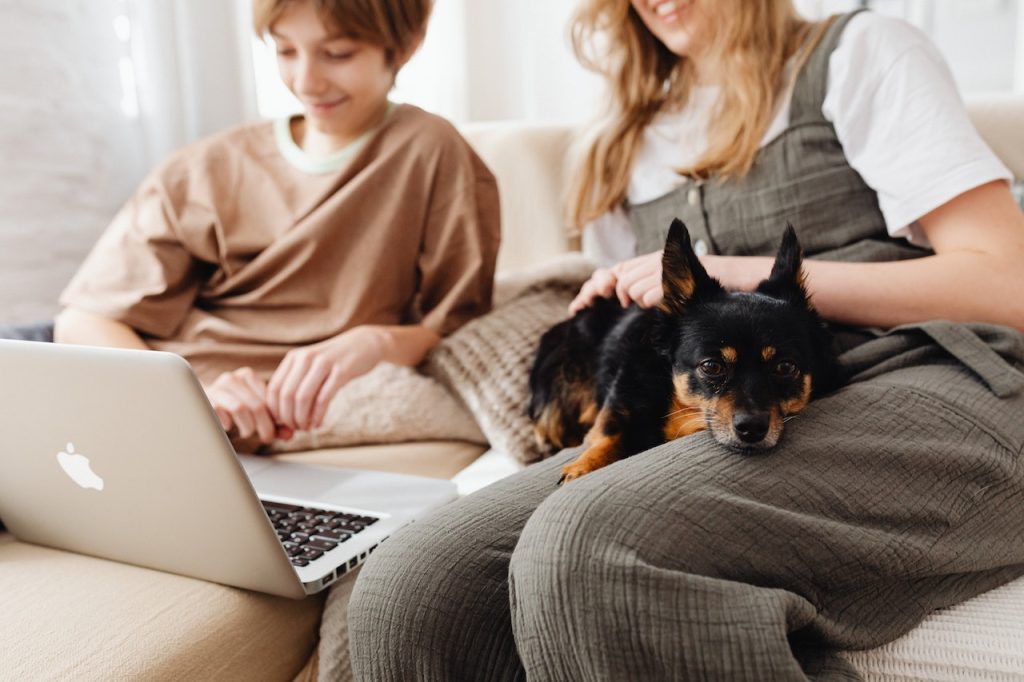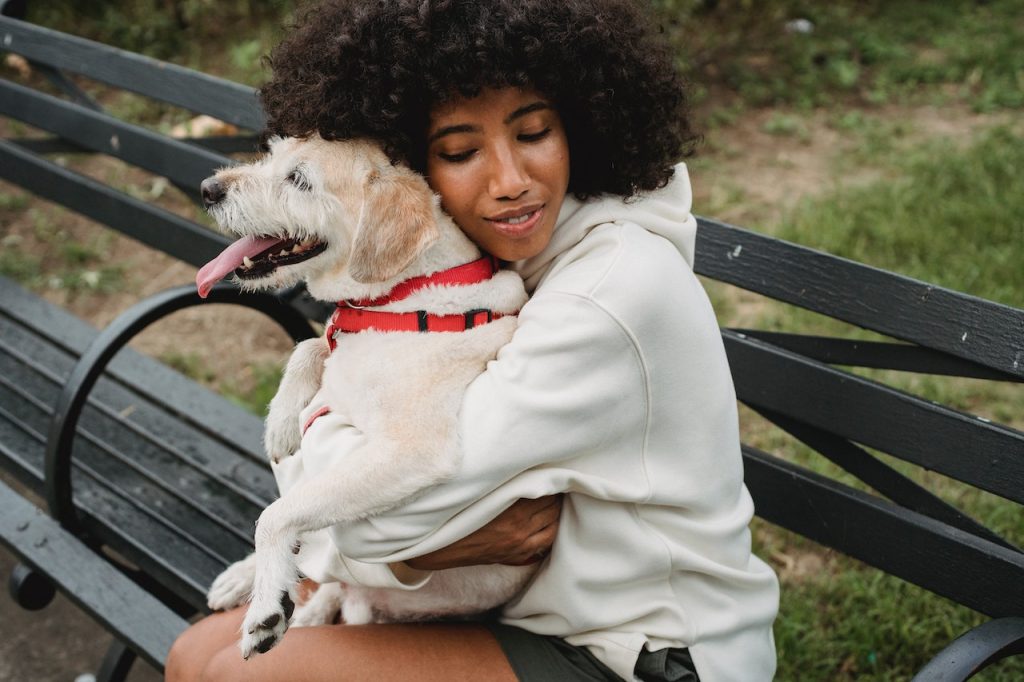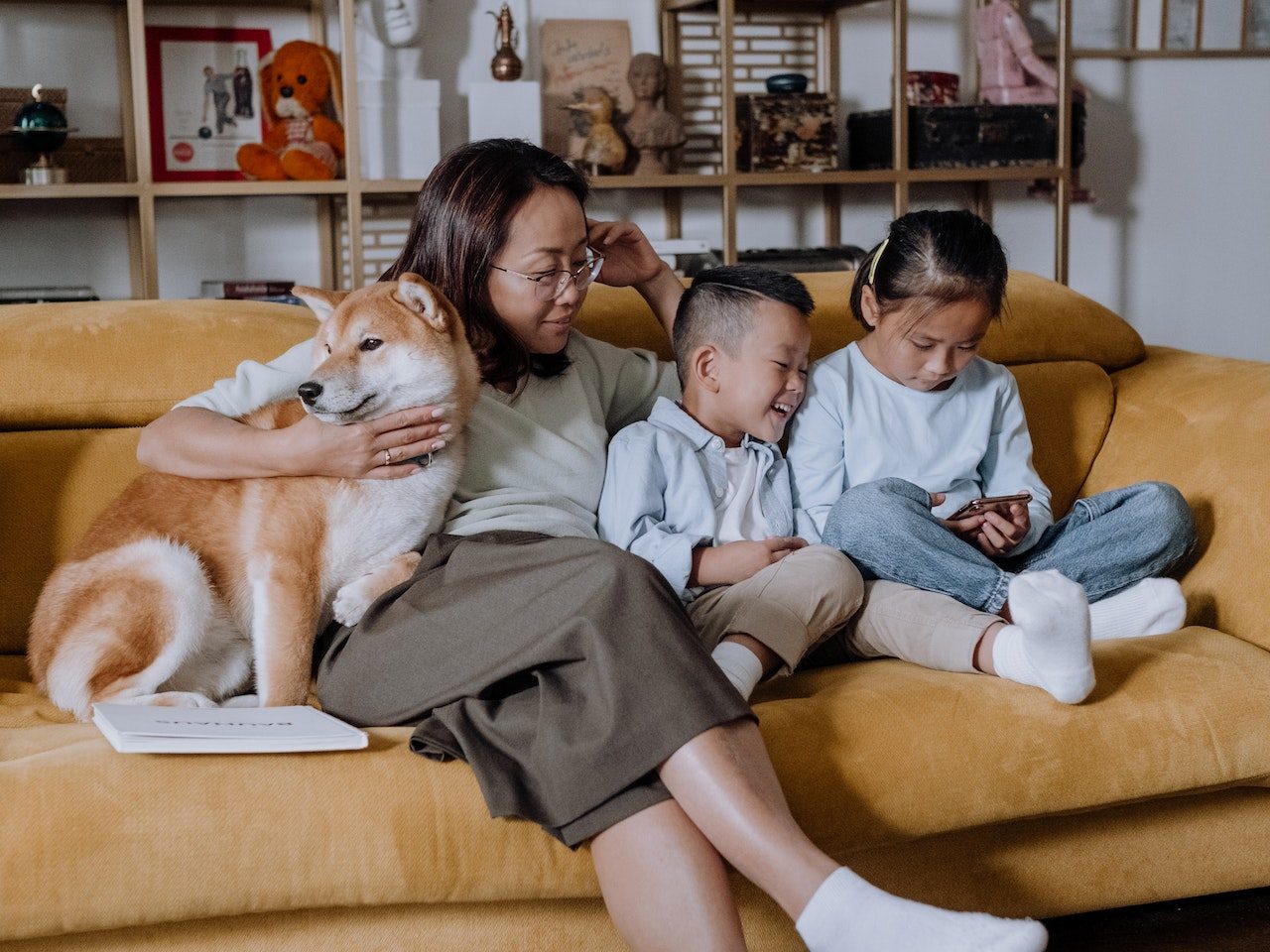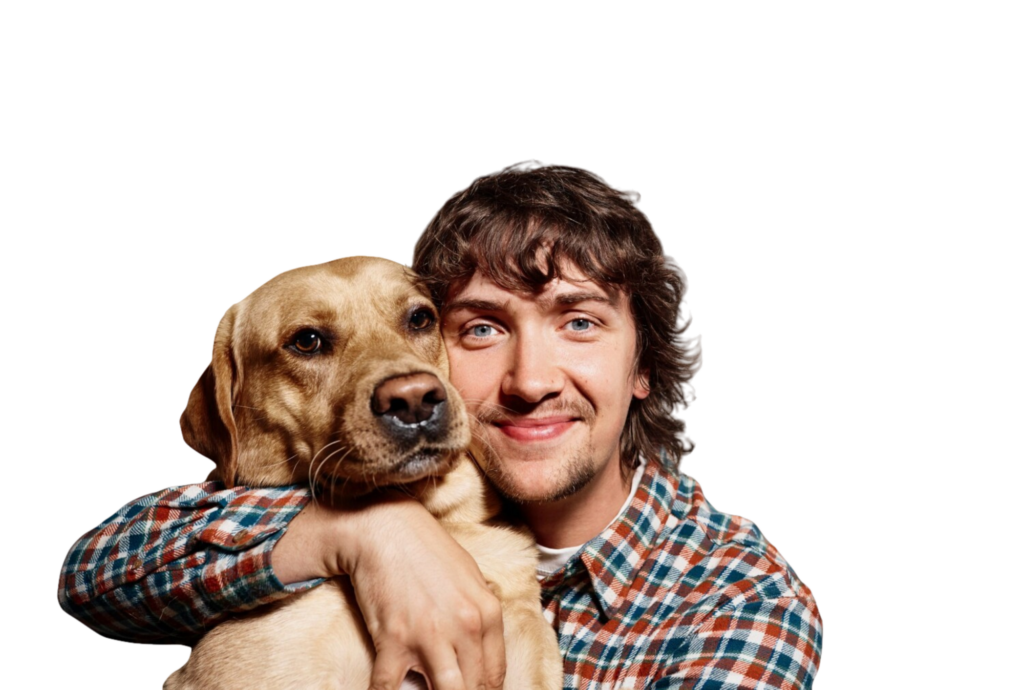Have you ever wondered, “why does my dog sit on me?” Dogs have some intriguing behaviors, and sitting on their owners is one of them. In this article, we’ll explore the various reasons behind this endearing yet sometimes perplexing canine behavior. Understanding why your dog sits on you can help strengthen your bond and ensure their well-being.

The Comfort Connection
Benefits of Physical Contact
Dogs are naturally social animals, and they often seek physical contact with those they love. When your dog sits on you, it’s their way of seeking warmth, comfort, and a sense of security. This physical closeness provides them with reassurance, making them feel safe and loved.
Bonding and Affection
Sitting on their owner is a way for dogs to express their affection and strengthen their bond with you. It’s like a warm, fuzzy hug that helps them feel emotionally connected to their human family members.
Territorial Instincts
Dogs are known for their territorial instincts. When they sit on you, they’re marking you as part of their territory. This behavior is a sign that they consider you a valued member of their pack and want to protect you.
Seeking Attention
Dogs are masters at getting our attention. If your pup sits on you, it might be their way of saying, “Hey, I’m here, and I want you to notice me!” They’re seeking interaction, playtime, or perhaps a tasty treat.
Anxiety and Reassurance
In some cases, dogs sit on their owners when they feel anxious or uncertain. Your presence provides them with a sense of reassurance, helping them feel more at ease in unfamiliar or unsettling situations.

Temperature and Comfort
Warmth and Security
Dogs are sensitive to temperature, and sitting on you can be their way of staying warm, especially during colder months. Your body heat provides them with a cozy spot to relax.
Cooling Off
Conversely, on hot days, dogs might sit on you to cool off. Your body temperature is lower than theirs, so sitting on you can help them regulate their body temperature.
Pack Hierarchy and Trust
Dogs are pack animals, and within a pack, there’s a clear hierarchy. When your dog sits on you, it can be a way of showing trust and acknowledging your role as the leader of the pack. They seek your protection and guidance.
Health Considerations
Sometimes, dogs may sit on their owners because of health issues. If your dog suddenly starts displaying this behavior, it’s essential to consider if they might be experiencing discomfort or pain. A visit to the vet may be necessary to rule out any medical problems.
Training and Behavior Modification
Redirecting Behavior
If your dog’s sitting behavior becomes problematic, it’s essential to redirect their actions. Train them to sit on designated spots or use a comfy bed. Consistency is key to successful behavior modification.
Consistency in Training
It is essential to be consistent with training to ensure your dog understands where they should sit and when it’s acceptable. Reward them for following your cues and discourage unwanted behavior.
What to Do If It Becomes a Problem
If your dog’s sitting behavior becomes problematic or uncomfortable for you, consult a professional dog trainer or behaviorist. They can provide personalized guidance to address the issue effectively.

In conclusion, when your dog sits on you, they do so for various reasons, all rooted in their instincts and their love for you. This behavior is a reflection of their affection, need for comfort, and desire for closeness. Understanding these reasons can help you appreciate the unique bond you share with your furry friend.
Read more blog posts!
Frequently Asked Questions (FAQs)
1. Is it normal for my dog to sit on me all the time?
- It’s relatively common for dogs to sit on their owners frequently. However, if it becomes excessive or problematic, it may require training and behavior modification.
2. How can I discourage my dog from sitting on me when I don’t want them to?
- Consistent training and redirection are key. Teach your dog to sit in designated spots and reward them for following your cues.
3. Can a dog sitting on me be a sign of dominance?
- It can be interpreted as a sign of trust and acknowledgment of your leadership within the pack, but not necessarily dominance in an aggressive sense.
4. When should I be concerned about my dog sitting on me?
- If your dog suddenly changes their behavior or shows signs of discomfort or pain, consult a veterinarian to rule out any underlying health issues.
5. How can I maintain a strong bond with my dog even if they don’t sit on me often?
- Bonding with your dog involves more than just physical contact. Spend quality time together, engage in play, and provide love and attention to strengthen your relationship.



